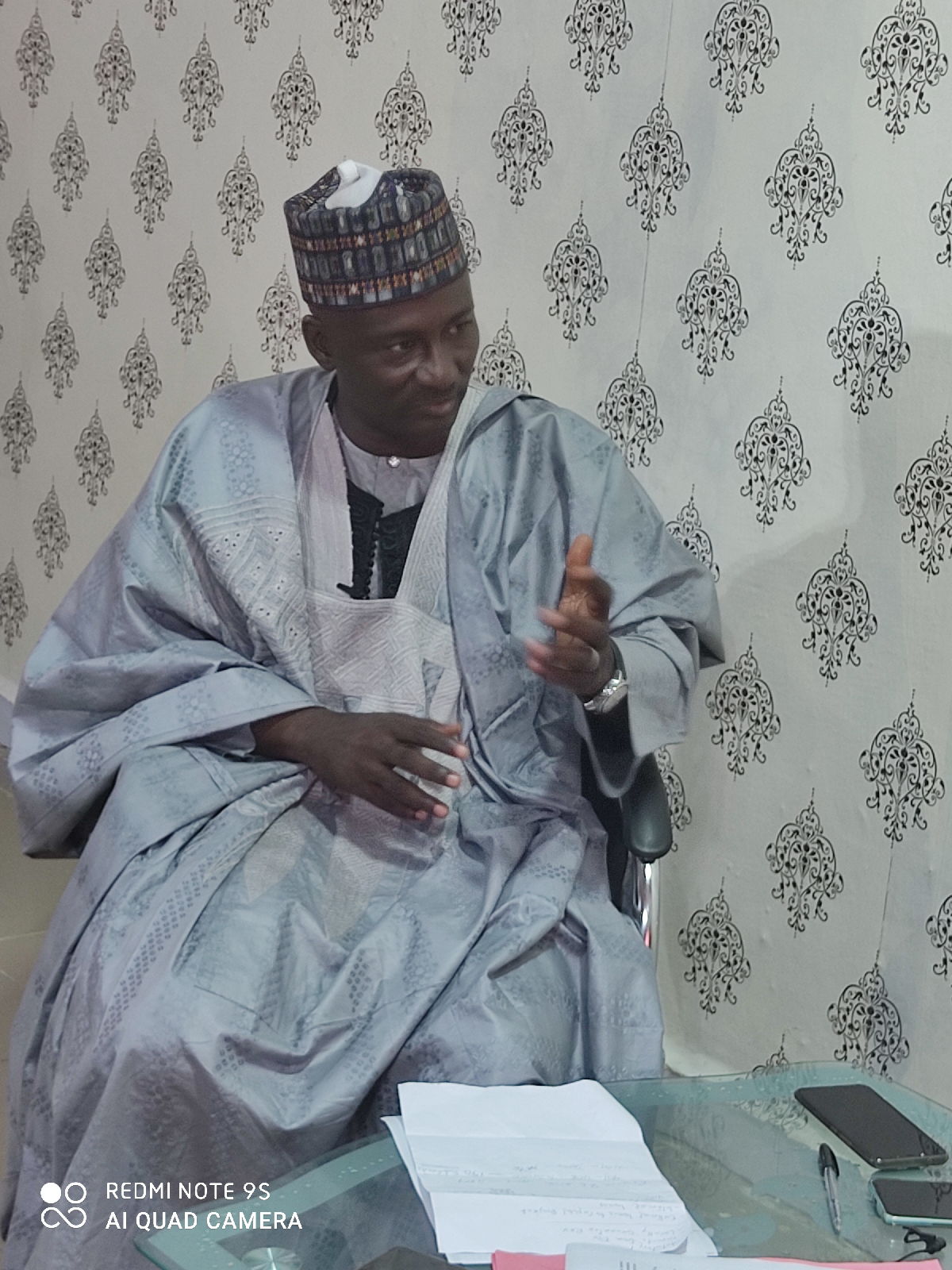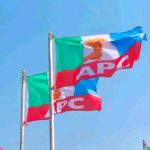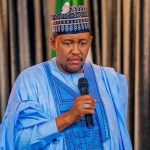Zamfara State is one of the few states that are facing serious economic crises and poor strategic planning, implementation and management in terms of revenue and expenditure framework. Its budgeting system is most a times not reflecting to the actual wishes of the majority of its populace and it has also depended largely on mono-source of revenue which is monthly statutory allocation from the federation account. These fiscal and monetary crises have affected the state strategic development plans especially with the infrastructural deficit, absence of investment plans as well as realistic saving plans for the doom period. This is not to say the crises are not surmountable but the state really need realistic action plans and strong political will on the side of the leadership to explore strategic options to save the state from eminent collapse. To discuss these viable strategies required for the state to change the narratives, an editor with the Thunder Blowers Nuhu Adamu Muhaamd has filed an extract from an interview with a World Bank scholar and economic policy analyst in person of Alh. Nasiru Kado Yahaya (Lamidon Gusau) on this and many issues.
What is your assessment of the economic planning of the state twenty three years after it was created?
I will like to say that the journey has been on and that some giant strides were made towards developing our fiscal and monetary policies. However, we are actually not where we are supposed to be. Our journey is characterized by what we termed in development economics as immiserising growth which implies growing at a miserable rate. A kind of growth that is characterized by one step forward and two steps backward.
Why do we usually experience this kind of growth?
This could be attributed to lack of capacity that exist at the inception stage of planning right from the Ministries, Departments and Agencies (MDA`s). I could remember during the military days, Zamfara used to be one of the few states with vibrant budgetary framework. In those days, we used to go to Abuja for budget defense, other states are being asked to understudy how we fashion out our budget. This is to tell you that, the framework used by the state in budgeting is superb but the capacity gap at the MDA`s in terms of planning the budget proposals ranging from conducting needs assessment, feasibility and viability studies and costing of projects in terms of bills of quantity up to sustainability analysis is lacking. This formed the basis upon which strategic development plans are developed. I challenge you to visit any state Ministry, Department and agency to find out what the practice is now and you will find out that, these procedures are no longer obtainable now. This could be attributed to absence of requisite training and re-training on this all important assignment as in most cases, the people charged with the responsibility rely heavily on on-the-job experience.
Why do you think most State Governors always implement projects that are not appropriated? Is this because of poor planning or deliberate political attempt to disrespect the laws?
This question is very critical to the discussion especially with the current trend among some states in Nigeria. It is a common logic that, one needs to plan if he really needs to succeed. Governors giving approvals running into hundreds of millions and sometimes into billions of Naira and politicians influencing projects execution outside the budget is indeed a bad precedence. There is approval threshold for a governor that do not exceed N250M and any approval of such will have to be deliberated and resolved at the Executive Council meeting before approval is granted. Once this provision is violated it could lead to an impeachment of a sitting governor. This is guided by the provision of financial regulation.
This kind of practice is what is leading the state into fiscal deficit as a result of too much emphasis that is given to expenditure aspect of the budget at the detriment or expense of revenue.
It is not bad for a Governor or a politician to conceive a project idea for the benefit of people. A state cannot be governed up-head. That is why we have budgets and strategic planning documents.
What impact do you think a sound economic planning and good governance could have on the people of Zamfara.
There is no doubt, with a sound economic planning and good governance, the sky will be the limit for Zamfara State because they are some of the internationally accepted best practices that move the economy forward. I will give you an example. If we have good electricity in Zamfara, you and I will not need a generator. If you have a sound education system in Zamfara, you and I will not take our children to private schools. If we have good health care system in Zamfara, you and I will not go to private hospitals or seek medical attention in private hospitals. If we have pipe-borne water in Zamfara, you and I will not need to drill borehole in our houses. The list is endless and these things constitute a burden on our meager resource and the result on you and I is that we end up subsidizing the inefficiency of government in terms of providing the basic amenities that make life worth living.
There has been a growing concern about poor performance of Zamfara State in terms of Internally Generated Revenue with a bad tradition that the state derive N3B annually. Where do you think the problem lies.?
The issue of non performance could be connected to leakages of non remittance and corruption that allegedly abound in the revenue generation drive of the state. We have revenue generating agencies in Zamfara that makes proposals on revenue to be achieved in a given fiscal year and if you take the budget document you will find out that we have in the revenue (8) categories of IGR sub-heads ranging from taxes, fines and fees, licences, reimbursement, rent on government properties, miscellaneous and what have you. Out of this, only taxes perform up to 70-80% due to component of PAYE that is classified under it. The bulk of the N3B you are talking about come in as PAYE which is a statutory deduction from the salary of civil servants. The 9th revenue sub-head is statutory allocation that comes from the Federation Account. One of the obligations of the State Government once statutory allocation is received is payment of salaries of civil servant. So, unless the state government received its statutory allocation, it cannot pay salaries and derive PAYE. Yet the State Board of Internal Revenue classified PAYE under the revenue it generated and charge certain percentage as retention and share it among its staff even when they did not make any effort in its generation. By implication, once there is problem with statutory allocation, the state will be at stand still.
What in your opinion is the way out of this mess?.
The way out is to block these leakages. Remove the PAYE component from the sub-heads of Board of Internal revenue, review the existing revenue sub-heads and explore other ways and means of revenue generation.
How do you think the state government shall go about this your recommended ideas?
One of the ways you can block the leakages is by introducing a revenue and expenditure software developed by System specs called Remita and replicate the policy of the federal Government on Treasury Single Account so that anything that will come into the coppers of government can be viewed under one single account. Under this platform, anything coming into government will have to pass through the process of generating Remita Retrieval Reference Number, obtaining payment advice and receipt from the same platform and any payment by the state government can be made using the batching system under the same platform instead of paying revenues over-the-counter with or without receipt by the revenue generating agencies. This way, revenues and expenditure of government can be tracked easily.
Budgeting system has been a source of concern to many stakeholders especially it was alleged that the way the budget is formulated is not appropriately responding to the real needs of the people and that, the system always target the expenditure and neglect the revenue component. What is your take on this?,
Well, I will like to refer you to the Financial Programming Model that International Monetary Fund (IMF) and World Bank use in turning-around the economies of developing countries particularly those that found themselves in financial crisis. This model was developed by a renowned Economist called Polak and it can be used by state governments. The model is very transparent, encourages disclosure, centered around income/revenue accounting and conforms with the standards of International Public Sector Accounting System(IPSAS) and International Financial Reporting Standards (IFRS).
The System view National Income/State Revenues on one side of the equation and expenditure on the other side. Under the expenditure component, it emphasizes setting aside part of the income of government for activities like, rcurrent expenditure which include personnel and overhead cost, capital expenditure and investments in revenue generating ventures and savings to take care of unforeseen eventualities.
It will surprise you to note that if Statutory allocation is to be considered, Zamfara is richer than Ghana if Aids, donation, Loans and Grants are excluded from it`s realistic inflows. We did a comparative analysis of the budgets of Ghana, Sierra leonne, Liberia, the Gambia and Zamfara State in University of Ghana (Legon) with Professor Cletus Dordunoo (a Ghananian) in 2008 and we deliberately left out Nigeria and used Zamfara as a case study. Ghana is classified as one of the Highly Indebted Poor Countries (HIPC) and the reports from the classification is what qualified them for Grants, donation, loans and Aid from developed countries.
What makes them different is that they are using this Financial Programming Model 100% and their IGR is capable of accommodating their recurrent expenditure. They channel the bulk of their inflows on investment and setting aside certain percentage as savings. As at the time the comparative analysis was done, the Government of Ghana has a Six (6) month import duty cover that was set aside as savings.
There has been concern about the manner at which the successive and current governments are securing loans from the local Banks in the name of project execution. Based on analysis, some of the projects are not likely the propriety of the people. How can we overcome this burden of loans and is it not possible to run a Government without loans?
It is actually very possible to run a government without securing loan even though, there is provision in the budget that allows governments in Nigeria to secure loans.
If you look at the budget of Zamfara State under the sources of revenue, you will find out that apart from Statutory allocation, grants, IGR, External loans to finance capital project, matching contribution to international NGO`s and VAT. There is also provision for internal loans.
Internal loan is allowed where the resources available to run a government is not available to take care of need of urgent importance. For example, where statutory allocation is delayed due to one reason or the other, the state may decide to take a commercial bank loan to off-set the salary of civil servants.
Problem arises when State Governments secure commercial Bank loans for long-term capital development projects due largely to the fact that commercial Bank loans are short term loans and they use a monetization schedule and charge interest on daily basis.
With the current situation in Zamfara, the best option is to restructure the short term loan liabilities into long term. This can be done by appointing a financial advisor that will serve as an intermediary between the state government and the Securities & Exchange Commission (SEC). The financial advisor is a registered entity registered and recognized by SEC to package short term liabilities into long term. This way, a loan that is repayable over a period of one year can be spread over a period of 5-10 years and this can release more funds to execute other projects of government that would otherwise be used in settlement on short term loans.
In addition to that, the State may decide to float bonds if there is need for its capital development projects. There are varieties of bonds that the state government can tap into depending on the need and circumstances. One of them is SUKUK which is an Islamic way of financing and there are the conventional bonds too.
What is your view on State and Local Government Joint Account?.
Nigerian democracy operate under fiscal federalism which recognizes the three tiers of Governments Federal, States and Local Governments. Again under fiscal federalism, there are certain categories of taxes that belong to the respective level of governments. There is a provision in the Constitution that allow Governors to operate State/Local Government accounts. However, that provision is detrimental to the development of local governments. Imposing the same provision on to operate Federal/State joint account could simply put the economy of Nigeria into comatose situation the same way it grounded local governments. However, one cannot rule out political underpinning behind the motive of strangulating the local government chairmen so that they dance to the tune of the state governments. But I have a strong believe that a N100M spent in a given local government could have a trickle-down effect that could re-invigorate the economy of that local government.
What advise will you give to government with a view to changing the narrative as it relate to economic planning and development of the state?.
Well, Alhamdulillahi, Zamfara State is blessed with professionals from diverse field of human endeavor that can serve as an engine room to move the economy forward, what is required is to engage them and to go back to drawing board. Let them come up with a blue print that will guide the development of the state. These, coupled with good governance and strategic development plan can be the road map for overcoming the development challenges and launching a new Zamfara that will be a shining example among its peers.



















